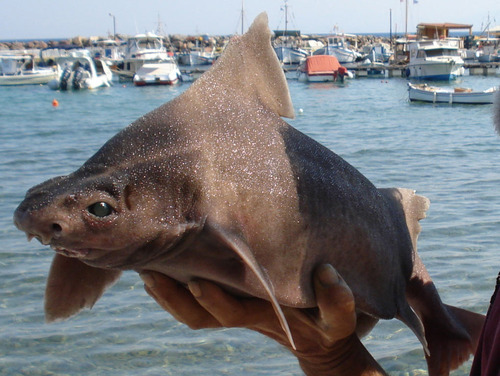
was seen by sailors on the naval ship floating in the waters of the Darsena Medicea marina in the town of Portoferraio on the Italian island of Elba on August 19.
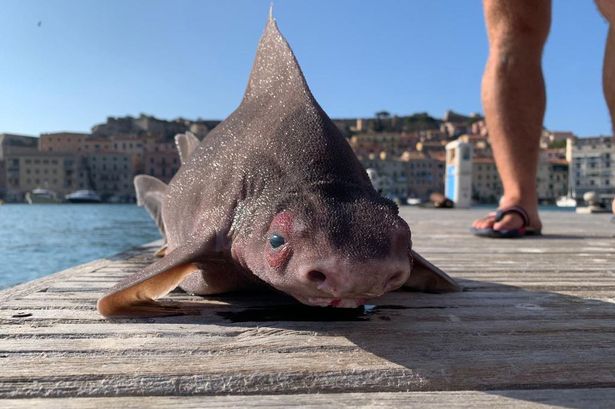
The creature was identified as an extremely rare angular shark, also known as a pigface shark.
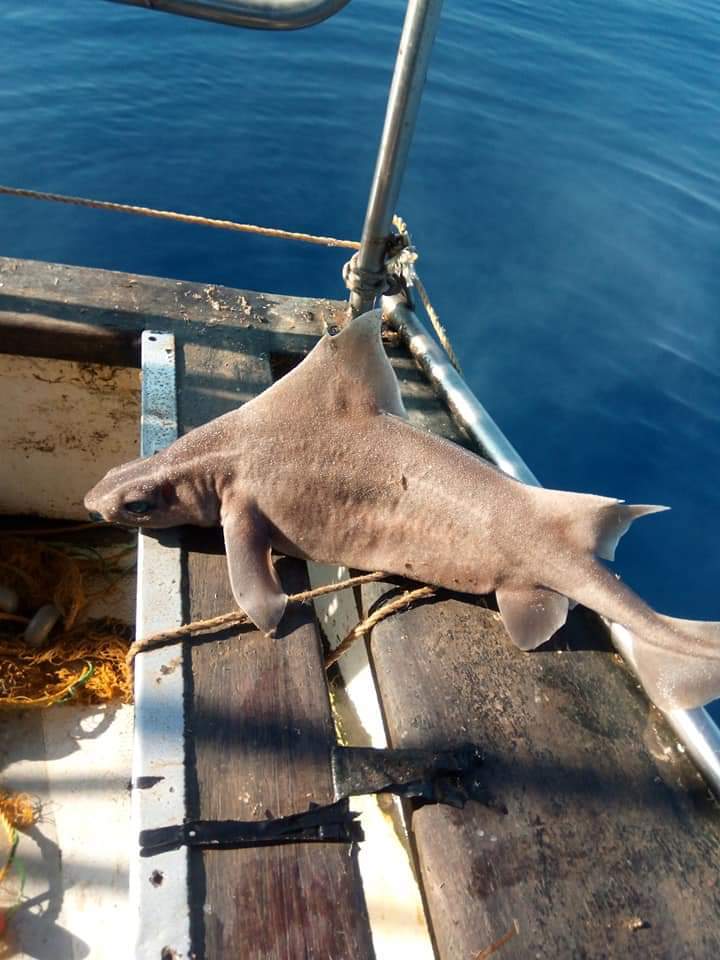
A strange deep-sea creature with the body of a shark and the face of a pig has been pulled from the water by Italian naval officers.
was seen by sailors on the warship floating in the waters of the Darsena Medicea marina in the town of Portoferraio on the Italian island of Elba on August 19.
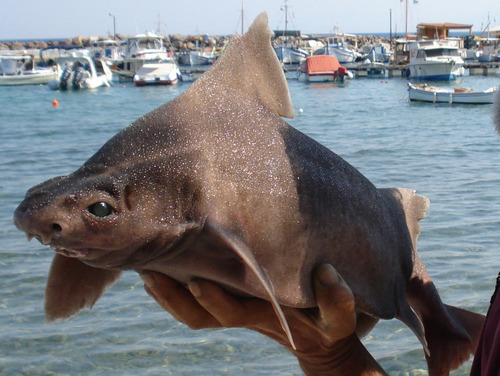
When they pulled it out of the water, they discovered that what at first glance appeared to be a shark actually had a face that looked more like that of a pig, but despite the initial scare, they determined it was a rare shark.
The creature was identified as an extremely rare angular shark (Oxynotus centrina), also sometimes known as a pigface shark.
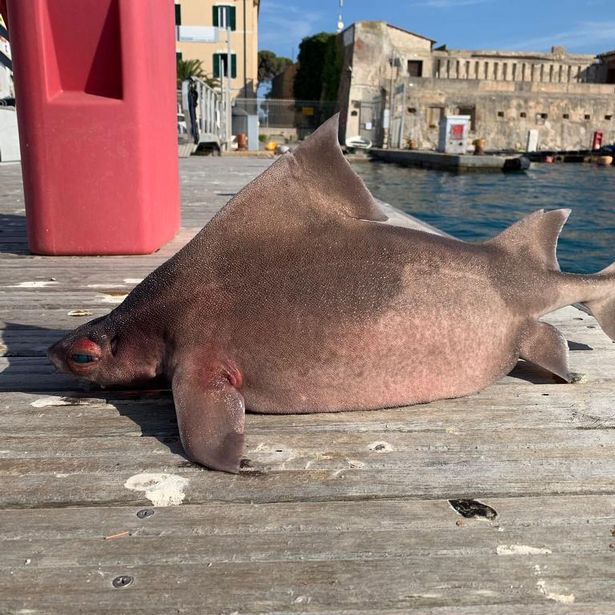
The creature normally lives up to 700 meters (2,300 feet) below the surface (Image: @isoladelbaapp/Newsflash)
It is also listed on the IUCN Red List as endangered, meaning it is rarely seen, it also typically lives up to 700 meters (2,300 ft) below the surface.
Even though the discovery took place three weeks ago, news of the discovery went viral only now when photos of the strange-looking marine animal were posted on social media.
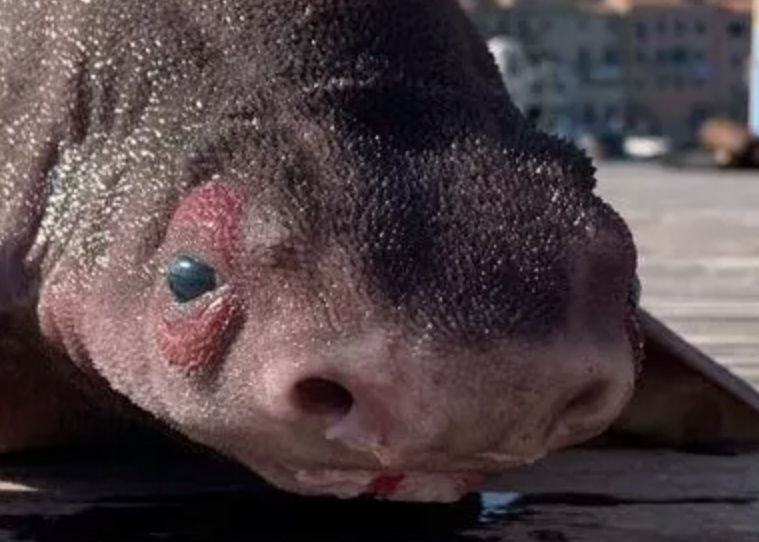
The post immediately attracted hundreds of comments, including criticism from netizens who thought the shark had been caught and killed on purpose.
After being pulled from the water, the angular coarse shark was taken to the port office to be studied and ultimately discarded.
Yuri Tiberto of the Elba Aquarium told local media that, although rare, it was not unusual for it to be seen locally.
And he added: “It is commonly called ‘pig fish’ because when it comes out of the water it makes a kind of grunt.
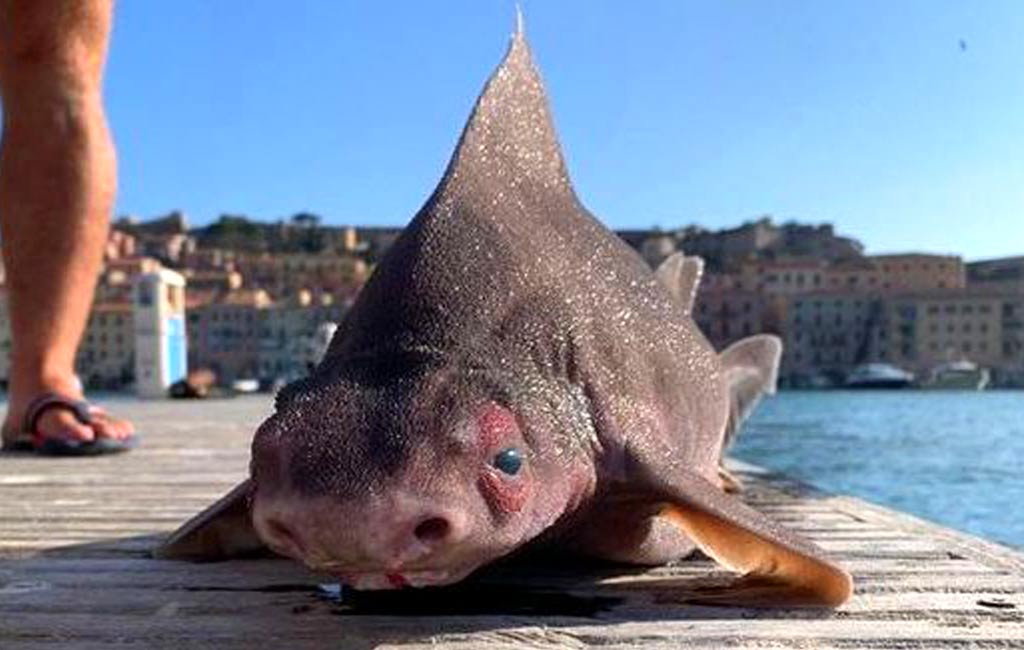
“In the sea of the Tuscan archipelago, so rich in biodiversity… it is not uncommon to find this fish, and I can safely say that I often receive reports telling me about ‘pig fish’ that have ended up in local fishing nets.
“I also tried for a while to house it in one of the aquarium tanks, but I soon gave up because I saw that it is a species that does not adapt to captivity.”
The Angular Rough Shark is known to live in the Eastern Atlantic Ocean and the Mediterranean. It is known for its wide, flattened head and fat, blunt snout.





